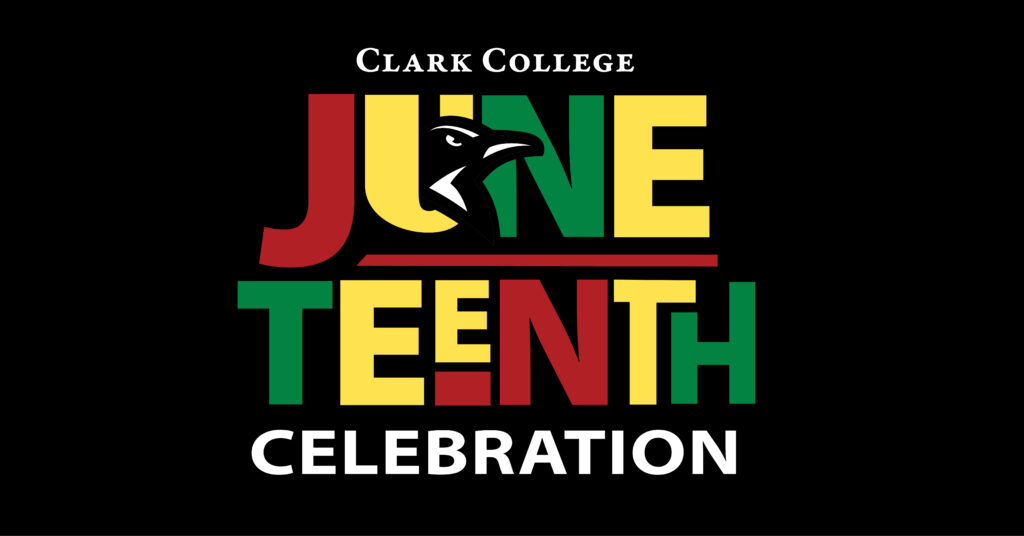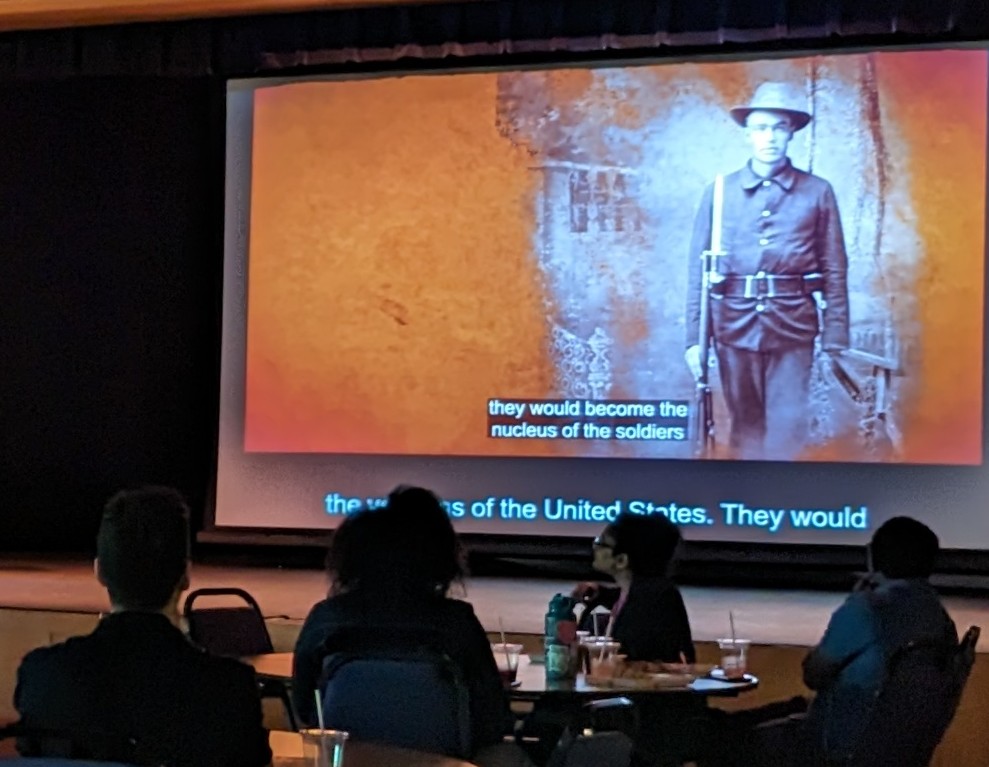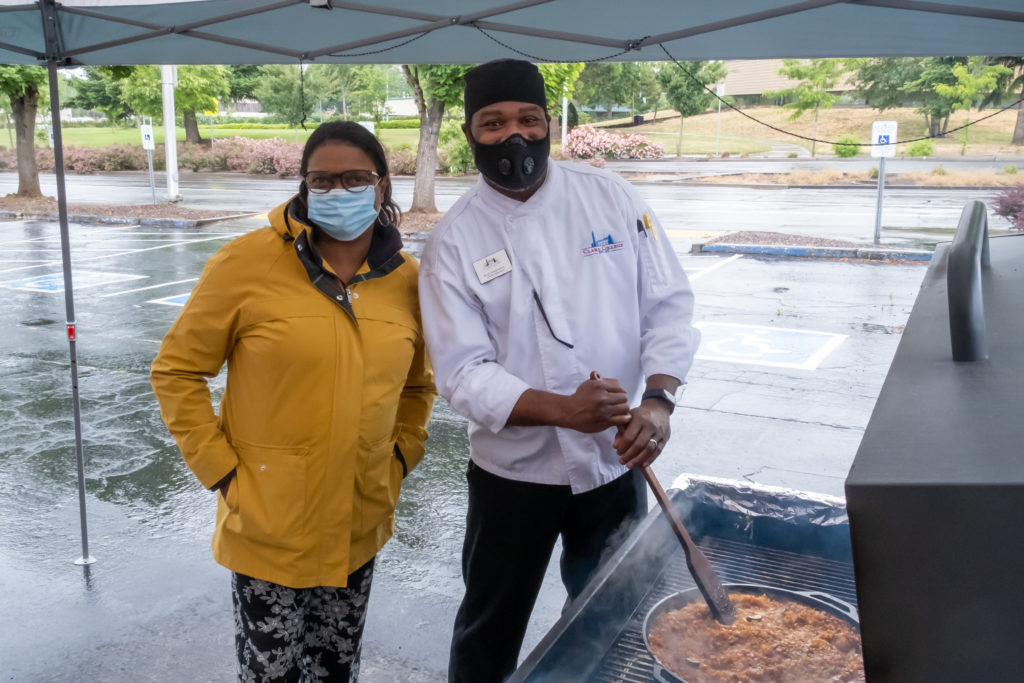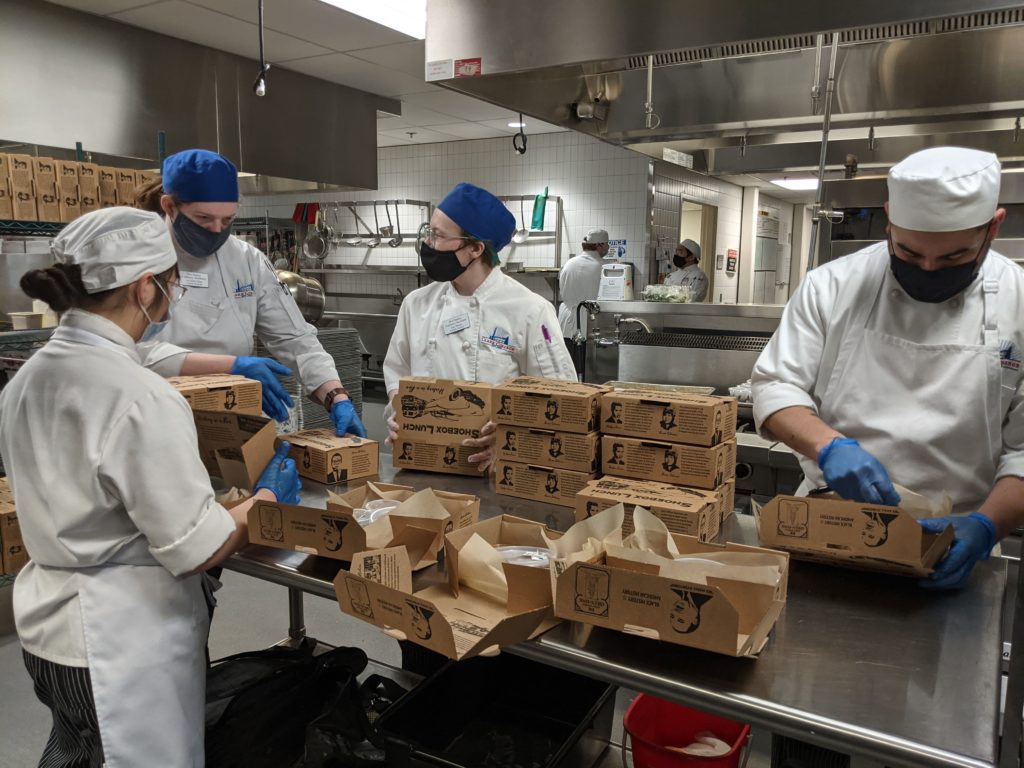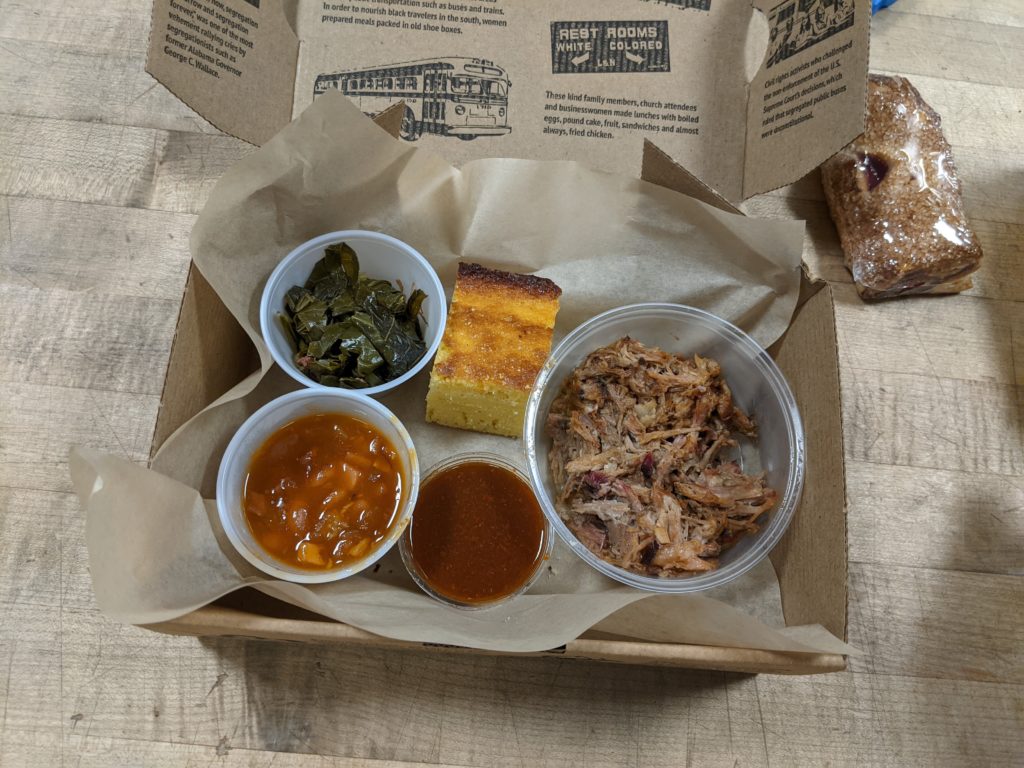Juneteenth 2024
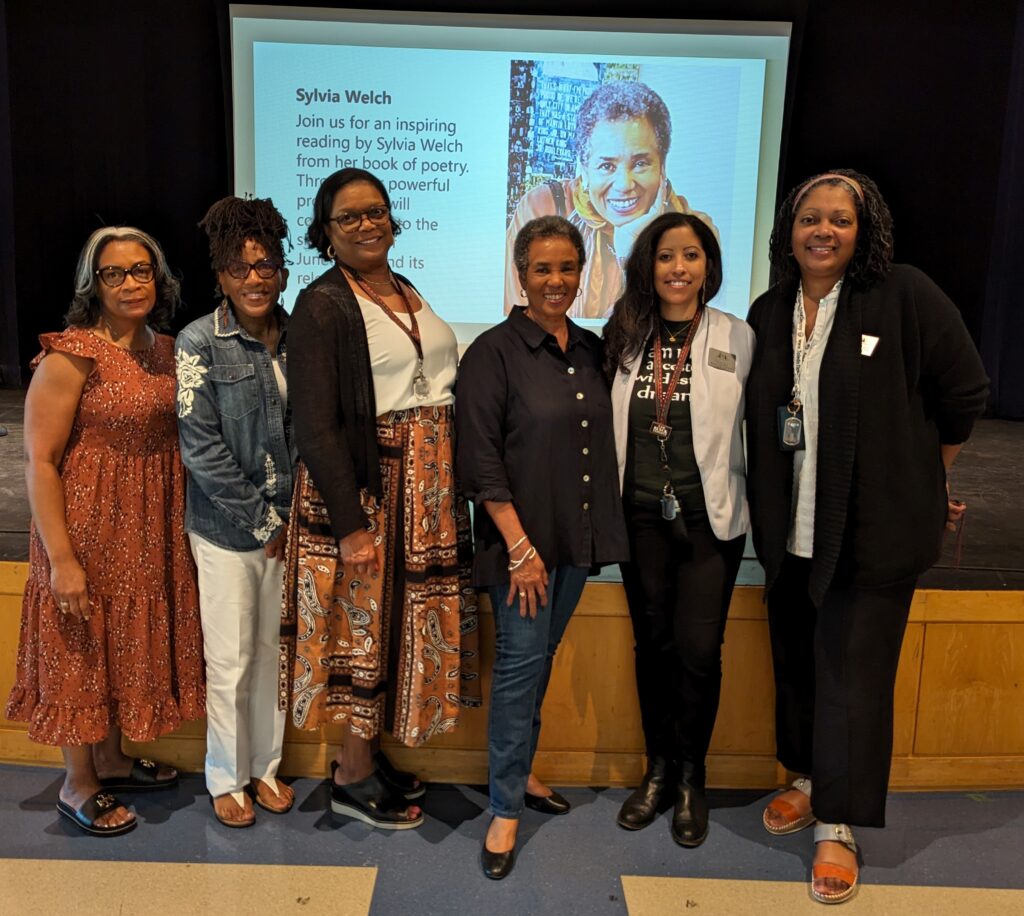
Clark College celebrated Juneteenth on June 6 by gathering during lunchtime for soul food, experiencing a poetry reading by Sylvia Welch, and celebrating community. The event was organized and sponsored by the college’s Office of Diversity, Equity & Inclusion (ODEI) and culinary programs. Clark College will participate in the Juneteenth Freedom Celebration on June 15 at Esther Short Park and all are encouraged to come out to honor Juneteenth and celebrate our shared journey towards freedom and equality.
ODEI intentionally scheduled this event early in June to ensure it doesn’t conflict with other community celebrations, demonstrating our utmost respect for all commemorations happening around us.
Soulful flavors: Chef Earl Frederick and his team of students and instructors prepared a delectable feast of soul food, provided at no charge to our students, faculty, staff, and community partners. People headed to the line in Culinary to be served, and then made their way to the Gaiser Student Center for the main event.
What is Juneteenth?
From its Galveston, Texas origin, Juneteenth is a federal and a state holiday to commemorate the emancipation of enslaved people in the U.S. Celebrations take place across the U.S. and beyond with focus on community and family gatherings, reflection, cuisine, and continued solidarity toward social justice.
Juneteenth (“June” plus “nineteenth”) is a federal holiday observed each year on June 19. Juneteenth was first celebrated in Texas, where on June 19, 1865, after the Civil War, enslaved people were declared free under the terms of the earlier Emancipation Proclamation in 1862. President Joe Biden signed the legislation that made Juneteenth a federal holiday in June 2021, making it the 11th official federal holiday. Since 2022, Juneteenth also has been recognized as a state holiday.
Reading from Poet Sylvia Welch
Local poet Sylvia Welch read selected poems from her book, “This, That, and the Other: As I Age into Understanding,” which was published in 2023. The poems included in this collection are diverse in style and nature, evoking decidedly different emotions taking us through different pathways and doors from different times in our lives, moving us along in our thinking and becoming.
Vanessa Neal added, “We were excited that Sylvia Welch provided an inspiring poetry reading. Through her powerful voice, Sylvia connected us all to the depths of her work and how her experiences connect to Juneteenth and its relevance today.”
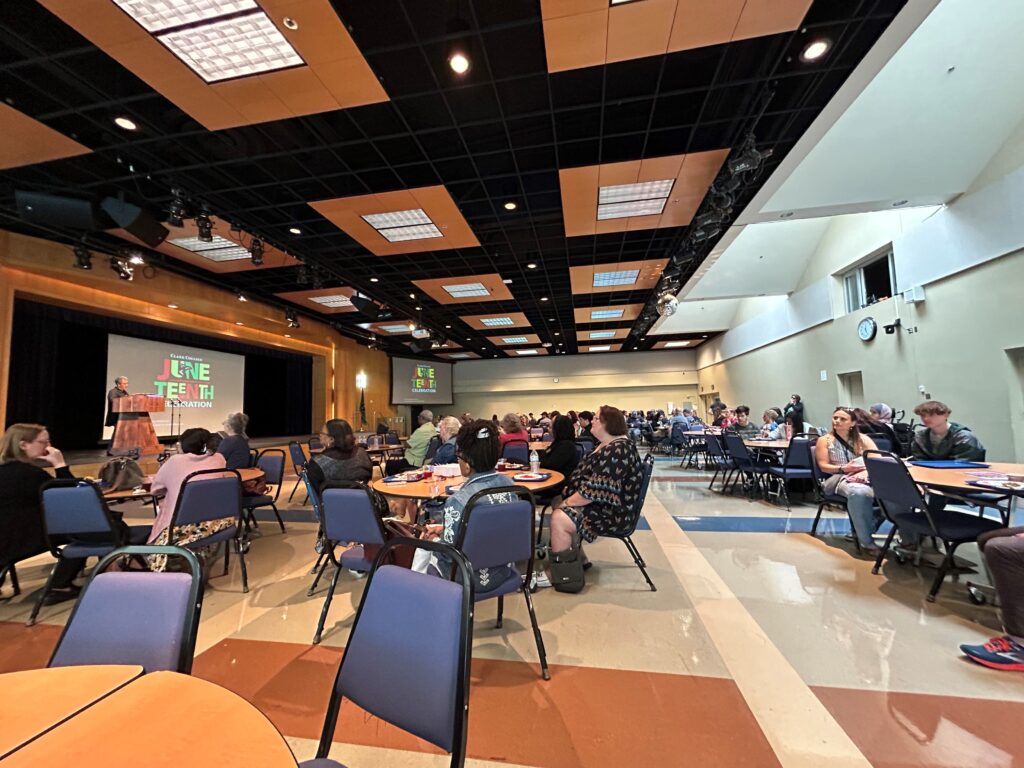
Welch began writing poetry at the age of 73 and published her first book at 75 and is working on her next poetry book. Sylvia grew up in the 50s, during a time of obvious racial inequities and attended college in the middle 60s when racial, social, and political injustices were prevalent, and the times were only slightly better for most African Americans.
Welch said those times produced lessons and experiences that have led to emotions, feelings, and actions that have helped her age into understanding. Her hope is to continue to do so because she has learned that understanding, like the light of day and darkness, doesn’t come all at once.
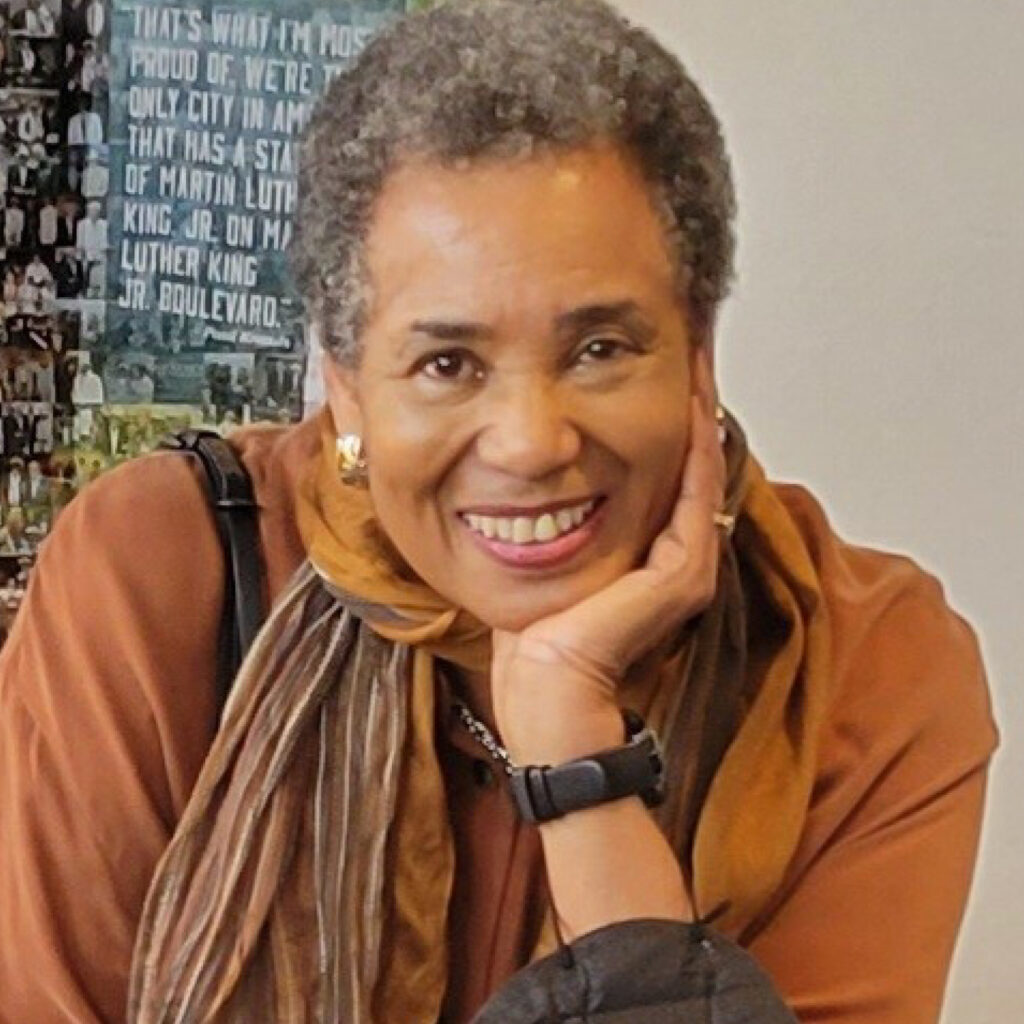
About Poet Sylvia Welch
Sylvia Welch lives in Woodland, Washington and is a wife, mother, daughter, grandmother, great-grandmother, a world traveler, adventurer, a fabric artist, and last but hardly least, an author and poet.
She retired after working for 35 years as an education administrator at Warner Pacific University, Portland Community College, and in Germany for the U.S. Department of Defense.
Welch earned her undergraduate degree from Ohio University in interpersonal and organizational communications and her master’s degree from Portland State University in communications with an emphasis on intercultural communications.
Chef Earl’s Juneteenth Menu
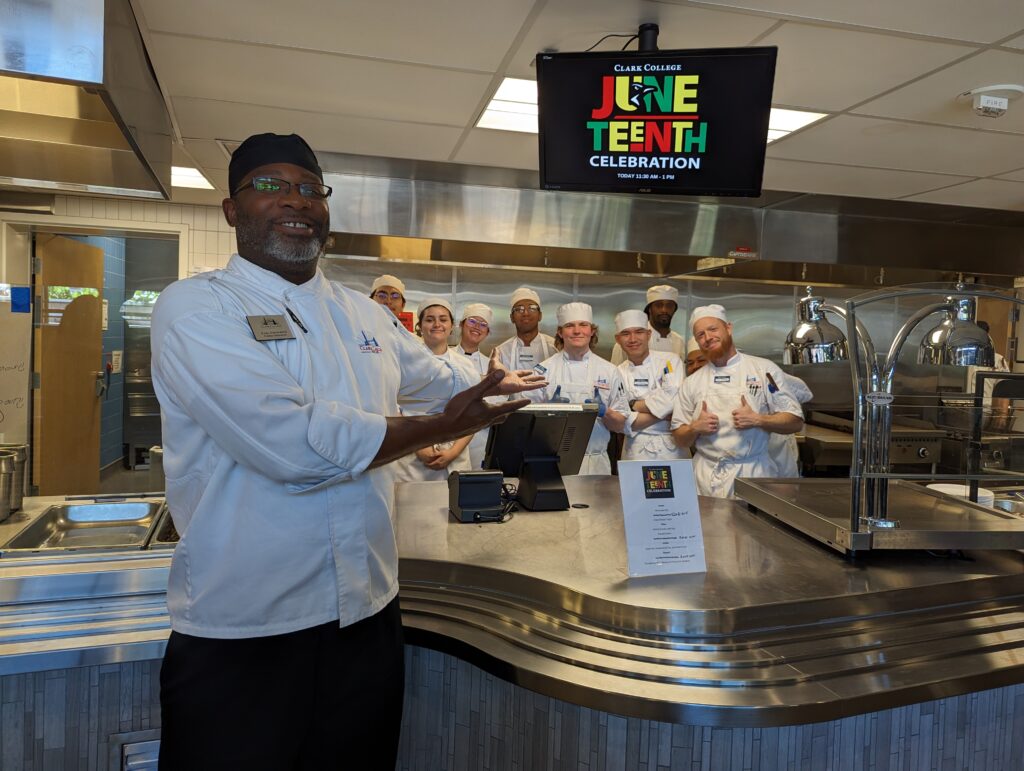
Delicious soul food was prepared by Chef Earl Frederick, Culinary Arts Professor in the Tod and Maxine McClaskey Culinary Institute at Clark College, and cuisine staff and students. The meal was offered free of charge to all diners and included:
- Marinated Pork
- Grilled Coho Salmon
- Grilled Chicken Thighs
- Shrimp Gumbo with Rice
- Braised Greens
- Southern-Style Cornbread
- Sweet Tea
- Sorrel Punch
- Mini Velvet Cupcakes
Chef Earl on Barbecue
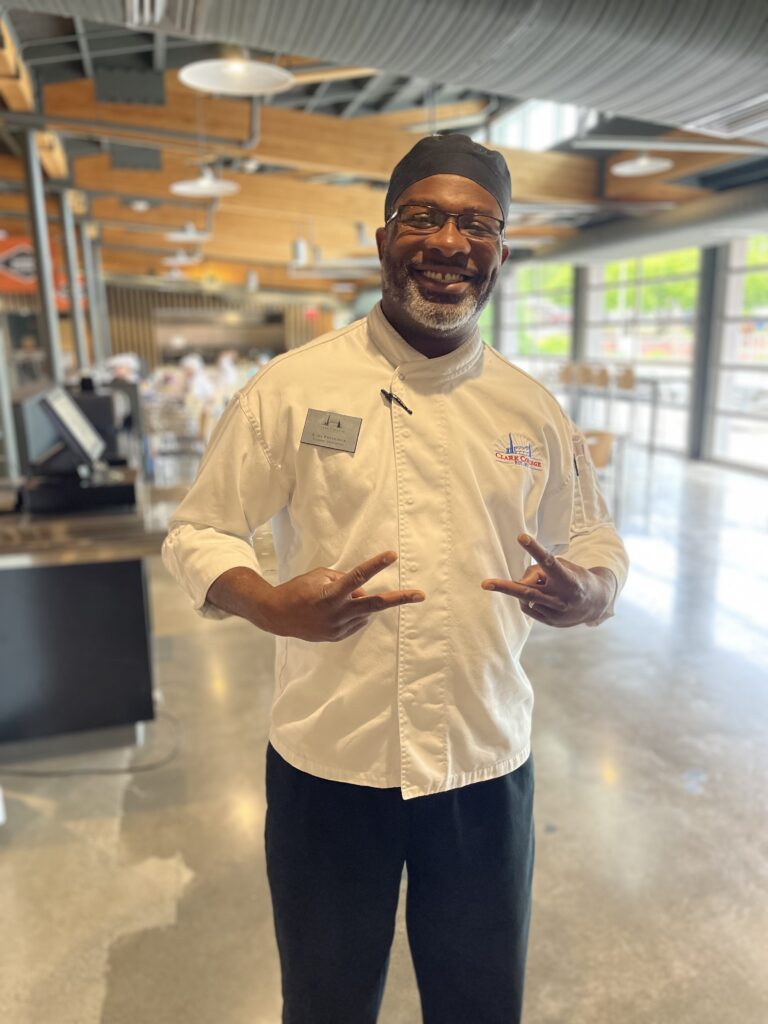
Cuisine instructor Earl Frederick said, “Barbecue is recognized as a Black contribution to American culture. It was slaves who passed through the Caribbean, cooking animals over pits on sticks. This style of cooking called barbacoa translates now into what we know as Southern barbecue. They also picked up seeds from hot peppers in the Caribbean, which became an important flavoring for the pork in the South.”
Frederick said his maternal grandmother, a sharecropper from North Carolina, told him stories about the significance of barbecue.
“My grandmother told me that barbecue is something that Blacks and whites in the South share. When tobacco was harvested in the fall, it was all-hands-on-deck with Blacks and whites working together doing the harvest.”
Workers hung tobacco leaves in tobacco barns that have slats to let air through. To prevent spoilage, this work had to happen quickly, so a big oak fire was built to cure, dry, and smoke the tobacco. Throughout the night, workers stoked the fire, which accumulated hot coals.
Frederick explained, “The tradition developed to roast a pig using those hot coals. People dug a hole in the ground, put hot coals in the bottom of the pit, put a grate over the coals, and put a butchered pig on the grate to slowly cook the pig. Everybody—black and white—ate the pig together. Something that didn’t happen any other time.”
Learn more about Juneteenth
We encourage folx to research how to get involved with organizations and community events to celebrate Juneteenth and get involved in support of diversity, equity, inclusion and anti-racism. To learn more, read the “The Historical Legacy of Juneteenth” online article. For any questions or further information, feel free to reach out to diversity@clark.edu.
Photos: Clark College/Susan Parrish
